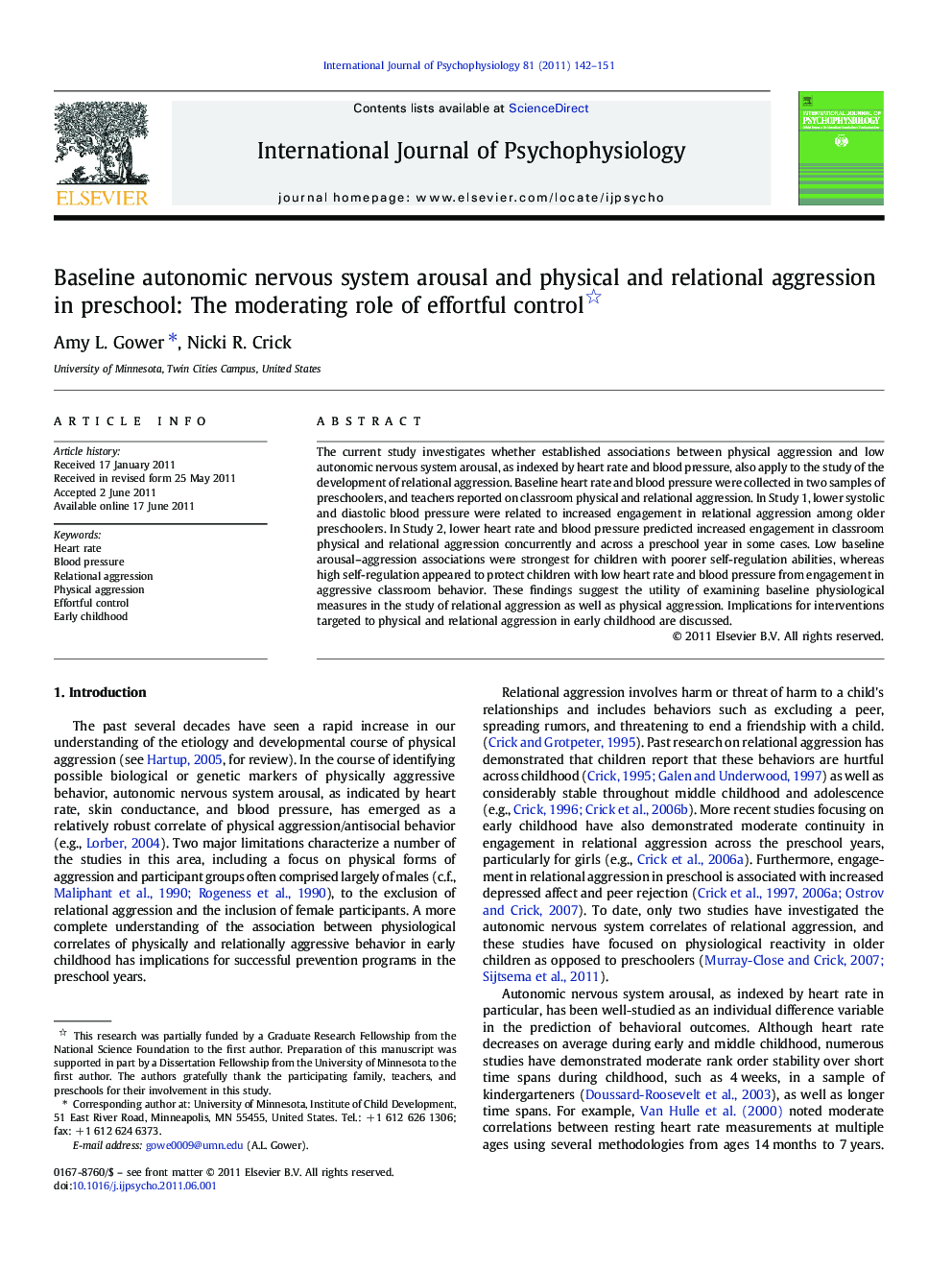| Article ID | Journal | Published Year | Pages | File Type |
|---|---|---|---|---|
| 930588 | International Journal of Psychophysiology | 2011 | 10 Pages |
The current study investigates whether established associations between physical aggression and low autonomic nervous system arousal, as indexed by heart rate and blood pressure, also apply to the study of the development of relational aggression. Baseline heart rate and blood pressure were collected in two samples of preschoolers, and teachers reported on classroom physical and relational aggression. In Study 1, lower systolic and diastolic blood pressure were related to increased engagement in relational aggression among older preschoolers. In Study 2, lower heart rate and blood pressure predicted increased engagement in classroom physical and relational aggression concurrently and across a preschool year in some cases. Low baseline arousal–aggression associations were strongest for children with poorer self-regulation abilities, whereas high self-regulation appeared to protect children with low heart rate and blood pressure from engagement in aggressive classroom behavior. These findings suggest the utility of examining baseline physiological measures in the study of relational aggression as well as physical aggression. Implications for interventions targeted to physical and relational aggression in early childhood are discussed.
Research highlights► Baseline heart rate and blood pressure collected for two preschool samples. ► Teacher reports of physical and relational aggression; self-regulation tasks. ► Lower heart rate and blood pressure predicted physical and relational aggression. ► Self-regulation moderated physiology–aggression associations. ► Low HR and DBP predict aggressive behavior in context of poor self-regulation.
